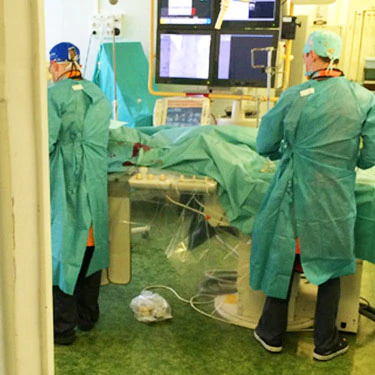Addressing Barriers to Healthcare in Russia
Medtronic is working with partners in Russia to address health challenges in the country.
Moscow, Russia’s capital city, is a busy place. With people coming and going, few would see Elena Ivanovna on her daily walk.
“I walk every day,” says the 82-year old woman. “I try to stay fit and look good.”
That’s a good example to follow in a country where being healthy comes with its challenges especially when it comes to heart disease.
“Some of it is unhealthy lifestyles,” says Anna Kontsevaya, a cardiologist and leading researcher at Russia’s Center for Preventative Medicine. “There is a high prevalence of smoking and high blood pressure.”
But there are other factors, too.
“There can be delays in the emergency response, a lack of public awareness about symptoms, and not enough qualified personnel to staff cath labs,” says Kontsevaya.
Prohibitive costs are also a major reason why heart disease is Russia’s number one killer—a mortality rate that’s one of the highest in the world.
“In Russia people die from myocardial infarction at a young age and a working age,” says Kontsevaya. “It’s an economic burden.”
Medtronic is committed to understanding these problems.
“When we build our strategy in the Russian market, our job is to look at the needs of the Russian healthcare system and the strategic initiatives and imperatives announced by the Russian government,” says Elena Plyasunova, Medtronic’s Vice President in Russia. “We see how we can match what we have like experience, therapies, and knowledge.”
Developing solutions that help keep patients healthy, longer, is something Medtronic can’t do alone. It requires strong partnerships – with doctors, hospitals, public health advocates and beyond.
“We are sure that the Russian government sees us as a strategic and reliable partner,” says Plyasunova.
The work is already underway. Medtronic is partnering with economists to conduct clinical studies, organizing initiatives to increase awareness, and making sure physicians are highly trained and prepared with high quality stents for coronary interventions.
“We are committed to removing the barriers to the healthcare in Russia,” says Plyasunova.
